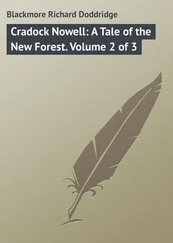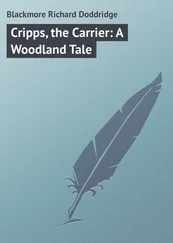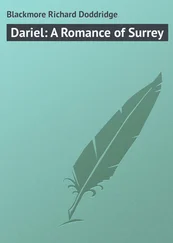Richard Blackmore - The Maid of Sker
Здесь есть возможность читать онлайн «Richard Blackmore - The Maid of Sker» — ознакомительный отрывок электронной книги совершенно бесплатно, а после прочтения отрывка купить полную версию. В некоторых случаях можно слушать аудио, скачать через торрент в формате fb2 и присутствует краткое содержание. Жанр: foreign_prose, на английском языке. Описание произведения, (предисловие) а так же отзывы посетителей доступны на портале библиотеки ЛибКат.
- Название:The Maid of Sker
- Автор:
- Жанр:
- Год:неизвестен
- ISBN:нет данных
- Рейтинг книги:3 / 5. Голосов: 1
-
Избранное:Добавить в избранное
- Отзывы:
-
Ваша оценка:
- 60
- 1
- 2
- 3
- 4
- 5
The Maid of Sker: краткое содержание, описание и аннотация
Предлагаем к чтению аннотацию, описание, краткое содержание или предисловие (зависит от того, что написал сам автор книги «The Maid of Sker»). Если вы не нашли необходимую информацию о книге — напишите в комментариях, мы постараемся отыскать её.
The Maid of Sker — читать онлайн ознакомительный отрывок
Ниже представлен текст книги, разбитый по страницам. Система сохранения места последней прочитанной страницы, позволяет с удобством читать онлайн бесплатно книгу «The Maid of Sker», без необходимости каждый раз заново искать на чём Вы остановились. Поставьте закладку, и сможете в любой момент перейти на страницу, на которой закончили чтение.
Интервал:
Закладка:
For the Coroner sate at the head of the table, in the great parlour of the house; and the dead child came in on his board, and we all regarded him carefully, especially heeding his coronet mark, and then set him by the window. A fine young boy enough to look at, about the age of our Bardie, and might have been her twin-brother, as everybody vowed he was, only his face was bolder and stronger, and his nose quite different, and altogether a brave young chap, instead of funny and delicate. All this, however, might well have come from knocking about in the sea so much.
I would have given a good half-crown to have bitten off my foolish tongue, when one of the jurymen stood up and began to address the Coroner. He spoke, unluckily, very good English, and his Honour was glad to pay heed to him. And the clerk put down nearly all he said, word for word, as might be. This meddlesome fellow (being no less than brother Hezekiah's self) nodded to me for leave to speak, which I could not deny him; and his Honour lost no time whatever to put his mouth into his rummer of punch, as now provided for all of us, and to bow (whenever his mouth was empty) to that Hezekiah. For the man had won some reputation, or rather had made it, for himself, by perpetual talking, as if he were skilled in the history and antiquities of the neighbourhood. Of these he made so rare a patchwork, heads and tails, prose, verse, and proverbs, histories, and his stories, that (as I heard from a man of real teaching and learning who met him once and kept out of his way ever after) any one trusting him might sit down in the chair of Canute at King Arthur's table. Not that I or any of my neighbours would be the worse for doing that; only the thought of it frightened us, and made us unwilling to hearken him much.
However, if there was any matter on which Hezekiah deserved to be heard, no doubt it was this upon which he was now delivering his opinions – to wit, the great inroad or invasion of the sand, for miles along our coast; of which there are very strange things to tell, and of which he had made an especial study, having a field at Candleston with a shed upon it and a rick of hay, all which disappeared in a single night, and none was ever seen afterwards. It was the only field he had, being left to him by his grandmother; and many people were disappointed that he had not slept with his cow that night. This directed his attention to the serious consideration, as he always told us at first start, being a lover of three-decked words, of the most important contemplation which could occupy the attention of any Cambrian landowner.
"Show your land," cried a wag of a tailor, with none to cross his legs upon; but we put him down, and pegged him down, till his manners should be of the pattern-book. Hezekiah went on to tell, in words too long to answer the helm of such a plain sailor as I am, how the sweep of hundreds of miles of sand had come up from the west and south-west in only two hundred and fifty years. How it had first begun to flow about the Scilly Islands, as mentioned by one Borlase, and came to the mouth of Hayle river, in Cornwall, in the early years of King Henry VIII., and after that blocked up Bude Haven, and swallowed the ploughs in the arable land. Then at Llanant it came like a cloud over the moon one winter night, and buried five-and-thirty houses with the people in them.
An Act of Parliament was passed – chapter the second of Philip and Mary – to keep it out of Glamorganshire; and good commissioners were appointed, and a survey made along the coast, especially of Kenfig. Nevertheless the dash of sand was scarcely on their ink, when swarming, driving, darkening the air, the storm swept on their survey. At the mouths of the Tawey and Afan rivers the two sailors' chapels were buried, and then it swept up the great Roman road, a branch of the Julian way, and smothered the pillars of Gordian, and swallowed the castle of Kenfig, which stood by the side of the western road; and still rushing eastward, took Newton village and Newton old church beneath it. And so it went on for two hundred years, coming up from the sea, no doubt, carried by the perpetual gales, which always are from the south and west – filling all the hollow places, changing all bright mossy pools into hills of yellow drought, and, like a great encampment, dwelling over miles and leagues of land. And like a camp it was in this, that it was always striking tent. Six times in the last few years had the highest peak of sand – the general's tent it might be called – been shifted miles away, perhaps, and then come back towards Ogmore; and it was only the other day that, through some shift or swirl of wind, a windmill, with its sails entire, had been laid bare near Candleston, of which the last record was in Court-rolls of a hundred and fifty years agone. 1 1 A clear and interesting account of this mighty sand-march may be found in a very learned paper by the Rev. H. H. Knight, B.D., formerly rector of Neath, Glamorgan; which paper, entitled "An Account of Newton-Nottage," was reprinted at Tenby in 1853, from the 'Archæologia Cambrensis.' Considerable movements still occur, but of late years no very great advance.
Now all this, though Hezekiah said it, was true enough, I do believe, having heard things much to the same purpose from my own old grandfather. The Coroner listened with more patience than we had given him credit for, although he told us that brother Perkins should have reserved his learned speech for the second inquiry, which was to be about the deaths of the five young men; for to him it appeared that this noble infant must lay the blame of his grievous loss not on the sand but upon the sea. Hezekiah replied, with great deference, that the cause in both cases was the same, for that the movement of sand went on under the sea even more than ashore, and hence the fatal gulfing of that ship, the Andalusia, and the loss of his young lordship.
The name he had given the ship surprised me; and indeed I felt sure that it was quite wrong; and so I said immediately, without any low consideration of what might be mine own interest. But the Coroner would not hearken to me, being much impressed now with the learning and wisdom of Hezekiah Perkins. And when Hezekiah presented his card, beginning with "horologist," and ending with the "king and queen," he might have had any verdict he liked, if he himself had been upon trial.
Therefore, after calling in (for the sake of form) the two poor women who found the dead baby among the sea-weed, and had sevenpence apiece for doing so, and who cried all the while that they talked in Welsh (each having seen a dear baby like him not more than twenty years ago), we came in the most unanimous manner, under his lordship's guidance, to the following excellent verdict: —
"Found drowned on Pool Tavan rocks, a man-child, supposed to be two years old; believed to be a young nobleman, from marks on pinafore, and high bearing; but cast away by a storm of sand from the ship Andalusia of Appledore."
Now I was as certain, as sure could be, that half of this verdict must be wrong; especially as to the name of the ship, and her belonging to Appledore, which never yet owned any craft of more than 200 tons at the utmost – a snow, or a brig at the very outside. Nevertheless I was compelled to give in to the rest of them, and most of all to the Coroner. Only I said, as many who are still alive can remember, and are not afraid to speak to, and especially my good friend Mr Lewis, "The ship was not called the Andalusia; the ship was never from Appledore; neither was she of British build. As an old seaman, it is likely that I know more of the build of a ship than a lubber of a clock-maker, or rather a clock-mauler."
But here I was put down sternly; and hearing of verdicts a great deal worse, without any mischief come of them, I was even content to sign the return, and have a new pipe of bird's-eye. And a bird's-eye view this gave me of them at the second inquest wherein I had to give evidence; and was not of the jury. They wanted to cross-examine me, because I had been unpleasant, but of that they got the worst, and dropped it. But as all our jurymen declared upon their oaths that the little nobleman was drowned in a storm of sand, so they found that the five young rabbiters came to their end of smothering through a violent sea-tempest.
Читать дальшеИнтервал:
Закладка:
Похожие книги на «The Maid of Sker»
Представляем Вашему вниманию похожие книги на «The Maid of Sker» списком для выбора. Мы отобрали схожую по названию и смыслу литературу в надежде предоставить читателям больше вариантов отыскать новые, интересные, ещё непрочитанные произведения.
Обсуждение, отзывы о книге «The Maid of Sker» и просто собственные мнения читателей. Оставьте ваши комментарии, напишите, что Вы думаете о произведении, его смысле или главных героях. Укажите что конкретно понравилось, а что нет, и почему Вы так считаете.












